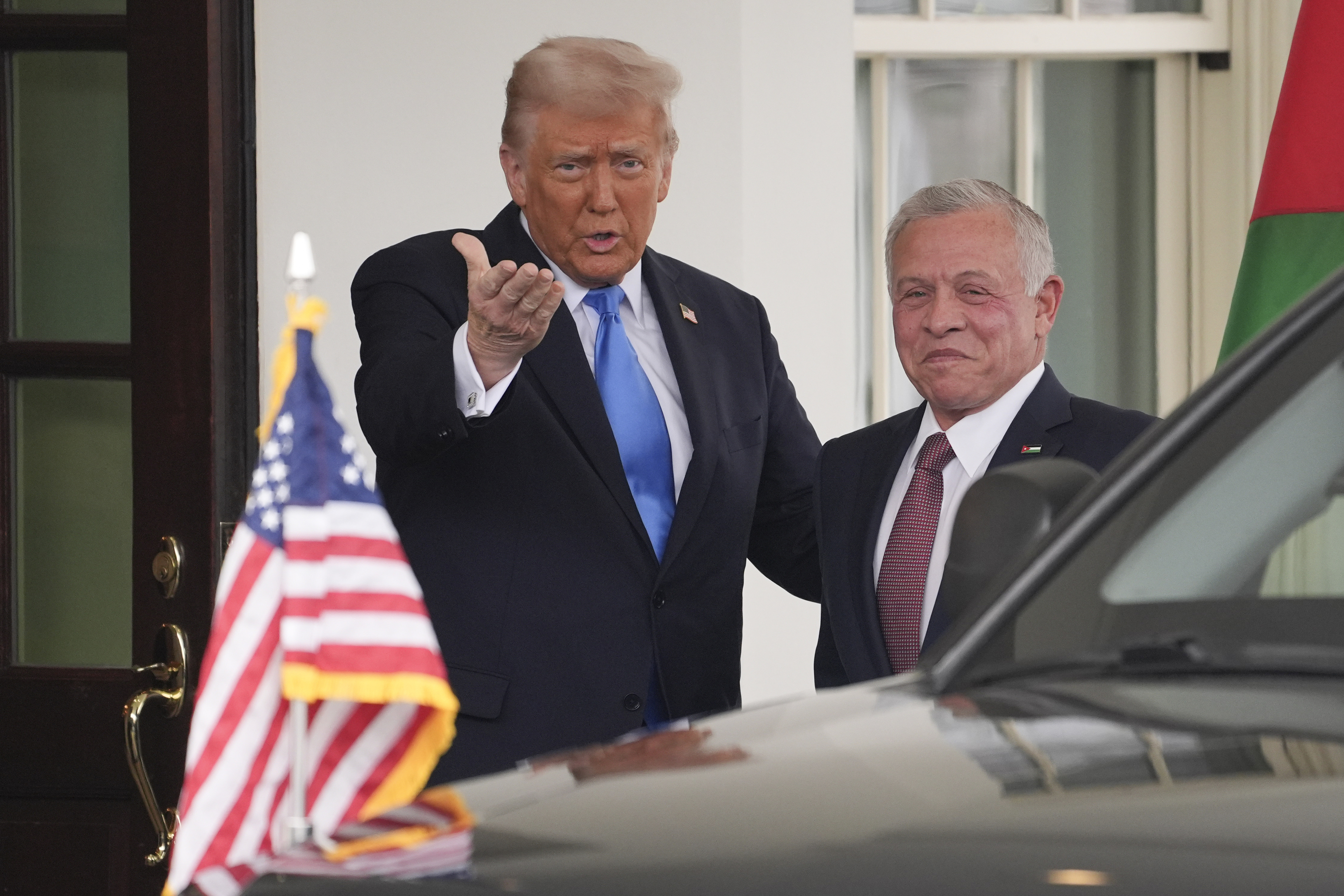Faces of circumstance, uncomfortable silences, and evasions. King Abdullah II of Jordan traveled to Washington this week, met with Donald Trump at the White House, and has a lot at stake. And that's why the situation could not have been more uncomfortable when the President of the United States, in response to journalists' questions, insisted on his plans for the Gaza Strip, which include Jordan, an important ally in the region, voluntarily or involuntarily hosting millions of Gazans, who would be illegally expelled from their land forever, as Trump said this past weekend, without considering their right to return.
Trump reiterated on Tuesday that Washington will take control of Gaza and will not back down. With what authority will all this be done? "With that of the United States," he stated. "It's not something complex to do. And with the United States in control of that piece of land, a fairly large piece of land, we will have stability in the Middle East for the first time," Trump declared from the Oval Office.
When pressed, given that he described it in terms of real estate operation, if it was part of his plans to do business personally, the President stated that it was not because "I have had a great career in the real estate sector," he said laughing. "We are not going to buy, there is nothing to buy. It is a devastated place. We are going to take control, manage [Gaza], preserve it, and give it value. It could be a diamond," he added, attacking Hamas, whom he described as "bullies and weak" and reiterating that they have a clear ultimatum to continue releasing the Israeli hostages from October 7.
Meanwhile, the King, visibly uncomfortable when Trump insisted that "removing two million people is very easy, it is a small number of people," tried to be as vague as possible in his interventions. He announced that Jordan will host 2,000 children from Gaza, sick with cancer and other diseases, something that Trump described as a "very beautiful gesture." However, he then simply said, "Let's wait until the Egyptians can come and present [a plan] to the president and not get ahead of ourselves," adding that he is working "focused on the interests of the Jordanians."
The trap was complete. And the Jordanian monarch is between a rock and a hard place. If he contradicts Trump, he risks the aid he receives annually from Washington, over $1.5 billion excluding funds for espionage and intelligence, being immediately cut off. At the same time, half of the population of his country is of Palestinian origin, so the stability and even the continuity of his reign and lineage depend significantly on what happens in the Strip and in the West Bank.
When asked if he maintained the threat to freeze aid to Jordan and Egypt if they rejected the plan, Trump was softer, but without retracting. "Well, I don't want to say that because we have had a very good relationship and things have gone very well in the short time we have been talking," he pointed out. "I don't need to threaten with money, we are above that."
"Mr. President, I sincerely believe that, with all the challenges we have in the Middle East, I finally see someone who can lead us across the finish line and bring stability, peace, and prosperity to the region. And I believe that it is our collective responsibility in the Middle East to continue working with you and supporting you to achieve those ambitious goals," the King stated, well advised on how crucial it is to praise Trump in front of the cameras and reinforce the idea that he is a transformative leader. As the Israeli Prime Minister did in that same place, stating that his plan showed that he "knew how to think outside the box and say what no one else dares."
Unlike what happened last week with Netanyahu, there was no joint press conference, but there were questions as they greeted each other seated. A journalist asked President Trump about Jordan and Egypt's obvious refusal to receive two million Palestinians. The President stated that they had "briefly" discussed the proposal and passed the hot potato to the King. "It's difficult to make this work in a way that is good for everyone," the monarch declared without going into details.
The businessman, however, persisted, saying that while he thought the issue of Hamas would go wrong because he does not believe they will respect the scheduled release, he was convinced "99%" that his unusual, extravagant, and completely illegal plan to forcibly displace the entire population of a territory ravaged by bombs would succeed. "The Palestinians, or the people who now live in Gaza, will live wonderfully elsewhere. They will live safely. They will not be killed, killed, and have to leave every 10 years [...]. We will give them great houses, they will be very happy," he reiterated.
